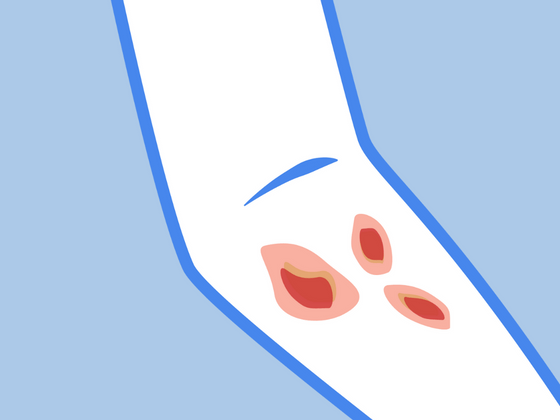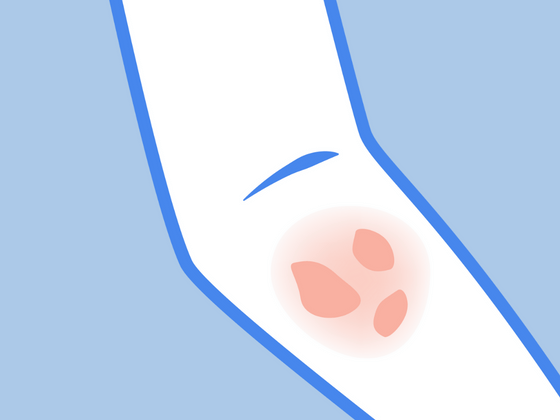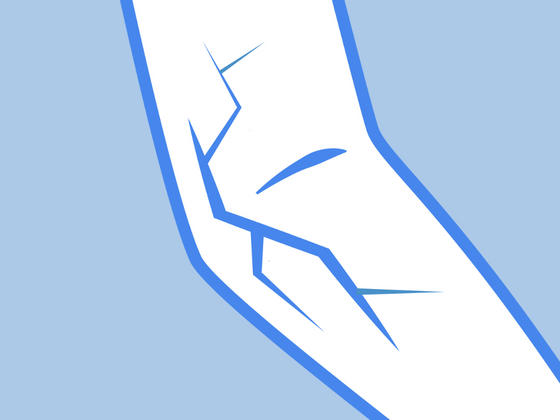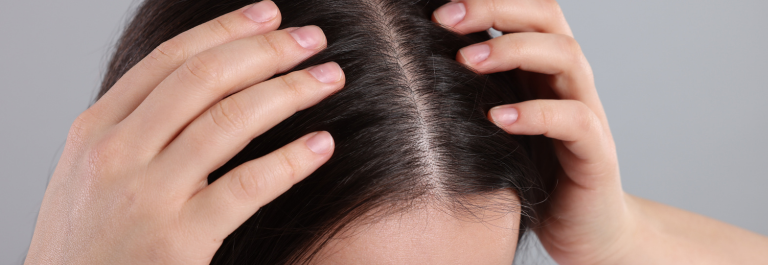Eczema, also known as atopic dermatitis, is a skin condition that causes dry patches and itchy skin, significantly affecting daily life. If you've ever noticed flare-ups after a hot shower or bath, you're not alone—many people with eczema experience worsening symptoms from exposure to hot water. Why is this?
The truth is, hot water eczema is a common issue, as very hot water can strip the skin of its natural oils, making it more prone to irritation. In this blog, we'll go over:
- How hot water affects eczema flare-ups
- Natural remedies to calm irritated skin
- Tips for treating eczema and keeping your skin barrier healthy
Read on to discover simple strategies to manage hot water with eczema and relieve symptoms effectively.
How Does Hot Water Affect Eczema
For those with eczema, hot water can negatively impact the skin. While a hot shower may seem soothing in the moment, the high temperature can actually lead to increased skin irritation, making eczema symptoms worse. This is because hot showers strip away the skin's natural moisture, which is essential to maintaining a healthy skin barrier. When the skin barrier is compromised, it can result in dry skin, leading to more itching and discomfort.
Hot water also causes increased blood flow, which can trigger eczema flare-ups. For people with eczema, this can intensify symptoms such as redness, swelling, and the formation of a skin rash. The more irritated your skin becomes, the harder it becomes to relieve the itching that often accompanies eczema. This is why it's important to avoid very hot water and instead opt for lukewarm water to prevent further skin damage.
Tips for Treating Eczema and Keeping Your Skin Barrier Healthy
One of the most important aspects of treating eczema is to maintain a healthy skin barrier. This involves preventing your skin from becoming too dry, which can worsen eczema symptoms. To keep your skin hydrated and reduce eczema flare-ups, here are some tips:
Avoid hot water
Instead of hot showers, opt for warm water or lukewarm temperatures when bathing. Hot water can exacerbate skin dryness and irritation, while cooler water helps to prevent it.
Use fragrance-free products
Harsh soaps and shampoos containing fragrances or artificial additives can irritate eczema-prone skin. Stick to fragrance-free, gentle cleansers to avoid triggering symptoms.
Moisturize regularly
After a bath or shower, be sure to apply moisturizer immediately to lock in moisture. Applying a moisturizer right after bathing can help seal in hydration and protect your skin barrier. We recommend our Nourish + Hydrate Manuka Balm, which is specially designed for sensitive skin. Its natural ingredients provide deep moisture while soothing irritated skin, helping to keep your skin soft, hydrated, and protected.
Avoid scrubbing
When cleaning your skin, skip harsh scrubbing tools like loofahs, sponges, or washcloths, as they can cause unnecessary friction and irritation. Instead, gently use your hands to lather soap or a soft cloth.
Be Mindful of Soap Usage
When managing eczema, it's essential to be strategic about how you cleanse your skin. Instead of using soap all over your body, focus on areas that typically need cleansing, like your hands, feet, and underarms. Avoid excessive soap use, as it can dry out your skin. For a nourishing option, try our Coconut and Sunflower Oil Soap, which cleanses delicately while helping to maintain your skin's natural moisture.
Dry or Wet Wrap Therapy
If you have more severe eczema, consider using dry or wet wraps. This method involves applying a natural emollient to your skin and using soothing fabrics, such as those found in our Remedywear eczema clothing, to lock in moisture. This technique can help restore hydration and alleviate the discomfort of dry, irritated, or inflamed skin.
The Benefits of Cold Temperatures
Cold temperatures can be incredibly soothing for eczema-prone skin. For example, using a cold compress or taking a shower with cold water can help reduce inflammation, calm itching, and minimize redness associated with flare-ups. This is because cold therapy helps constrict blood vessels, which can reduce swelling, relieve itching, and calm irritation. Incorporating cold treatments into your skincare routine can help manage eczema symptoms and promote a calmer, more balanced skin condition.
Find Itch Relief from Hot Water Today
By understanding how temperature affects your eczema and using the right treatments, you can better manage symptoms and keep your skin feeling comfortable and nourished.








